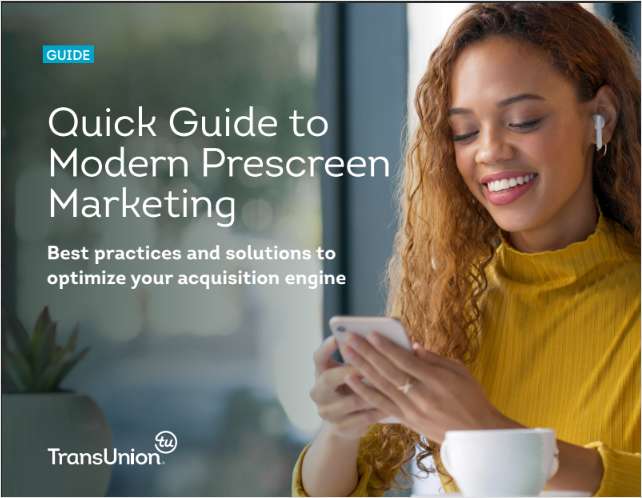BROOKFIELD, Wis. – Fiserv is poised to become an even bigger player in the credit union data processing space. Fiserv is seeking to acquire EDS' credit union division, which has been rumored to be up for sale for months now. According to TheDeal.com EDS is looking to sell the unit for between $300 and $500 million. The EDS unit provides core processing for about 900 credit unions. EDS has been offering CUs core processing solutions since 1974. Fiserv is already a household name in this industry with six credit union data processing subsidiaries. Fiserv is known for its acquisitive ways and gained much of its girth in credit unions through acquisitions. Its current six subsidiaries are XP Systems, USERS, AFTECH, Summit, Galaxy and CUSA Technologies. Fiserv is also known to take a hands-off approach with the companies it acquires in terms of letting management stay in place and allowing them to compete freely with other Fiserv companies as if they were still independent. If the deal did go through Fiserv would have a nice chunk of marketshare in the industry. Based on the most recent numbers Credit Union Times has of Fiserv's subsidiaries, the six companies currently provide core processing for about 2,300 CUs – add EDS' 900 and Fiserv is the core processing provider for just over a third of the credit union industry. By its own official estimates, Fiserv said it believes it would have 34% marketshare. Credit Union Times has learned that the Department of Justice is conducting a preliminary anti-trust inquiry into this deal. Two key criteria DOJ considers for pursuing a preliminary inquiry include, if there are sufficient indications of evidence of an antitrust violation and the amount of commerce affected is substantial. Fiserv doesn't believe anti-trust is an issue and that this deal wouldn't squash competition, which is the main virtue anti-trust laws protect against. "Fiserv believes the proposed transaction would not adversely affect competition to provide financial services to credit unions or other financial institutions. Many companies, including Jack Henry/Symitar, Harland/Ultradata, OSI, Liberty, Fitech, Aurum Technology, and many others compete vigorously to supply `core' processing to credit unions, and many companies compete equally vigorously to supply add-on or supplemental products and services to the industry," stated Fiserv in a statement. Fiserv also played on the presence of traditional bank processors in the CU space. "As credit unions increasingly compete for customers from banks, thrifts, mortgage banks and other financial institutions, traditional bank-oriented core processing providers increasingly serve credit unions as well," Fiserv stated. EDS has been mum on merger rumors for months now, but a spokesperson finally confirmed that the two companies were in negotiations, though nothing has been ironed out as of yet. "There is no binding agreement and the regulatory review process continues. EDS has talked of plans to divest certain assets to further tighten its focus on areas of sustainable, profitable growth, and the discussions with Fiserv are part of that process. In the mean time, EDS will continue to operate the credit union business with all the necessary resources to ensure that clients continue to receive quality service that they have always received," the EDS spokesperson said. Including its 900 core processing credit union clients, in total EDS touches about 1,500 credit unions. EDS' credit union division employs approximately 500 people. For EDS this continues a trend out of the financial institution core processing space for community financials. It sold off its community bank core processing unit in 1999. That former unit is now Aurum Technology, which is aggressively going after the CU marketplace. It's been a tumultuous year for EDS. At press time the company announced it was cutting 2% of its workforce, approximately 2,700 positions, and selling off non-strategic assets in an effort to cut costs. Shareholders have criticized its leaders for awarding millions of stock options to executives, while the company's performance was below normal. The company was also hit with an SEC investigation and hurt by some key clients declaring bankruptcy. EDS has been downgraded a number of times this year by analysts and was trading at about $22 as of press time, lowly levels for the IT giant. EDS is a giant even next to Fiserv. It employs over 130,000 people worldwide and had over $21 billion in revenue last year, with almost half of that coming from outside of the U.S. Fiserv's revenue was $2.3 billion last year. EDS and Fiserv have made deals before. Just last year Fiserv purchased EDS' Consumer Network Services, an EDS EFT subsidiary. As for the anti-trust issue, it could be a short process or could drag on for months if the Department of Justice believes there is a problem. Bert Foer, president of the American Antitrust Institute, Washington, D.C., offered a rundown of the anti-trust process in mergers. When a deal is going to be entered into, both companies notify the DOJ and the Federal Trade Commission as dictated by the Hart-Scott-Rodino Act. The agencies decide which agency will follow through on the case based on expertise. The agency has 30 days to file a second request for information on the deal, this happens in about 3% of deals. The companies need to provide any information requested, which could be substantial, said Foer, and the DOJ has another 60 days to seek an injunction blocking the deal if they see cause to. "If the agency sees a competitive problem, they will attempt to reach a solution and make a settlement. A competitive impact statement will be provided to the public, with opportunity for public comment," said Foer. Foer said the DOJ will be looking at the structure of the industry and try to determine how a merger would affect other companies entering the market, how it would affect competition, price increases, innovation, and other factors. He said the higher level of concentration in an industry, meaning fewer companies serving it, the more focus there will be on the merger and possible anti-trust. Finally, said Foer one of the most important things will be for "the companies to show why it would be beneficial to have the merger go through." [email protected]
Complete your profile to continue reading and get FREE access to CUTimes.com, part of your ALM digital membership.
Your access to unlimited CUTimes.com content isn’t changing.
Once you are an ALM digital member, you’ll receive:
- Breaking credit union news and analysis, on-site and via our newsletters and custom alerts
- Weekly Shared Accounts podcast featuring exclusive interviews with industry leaders
- Educational webcasts, white papers, and ebooks from industry thought leaders
- Critical coverage of the commercial real estate and financial advisory markets on our other ALM sites, GlobeSt.com and ThinkAdvisor.com
Already have an account? Sign In Now
© 2024 ALM Global, LLC, All Rights Reserved. Request academic re-use from www.copyright.com. All other uses, submit a request to [email protected]. For more information visit Asset & Logo Licensing.









